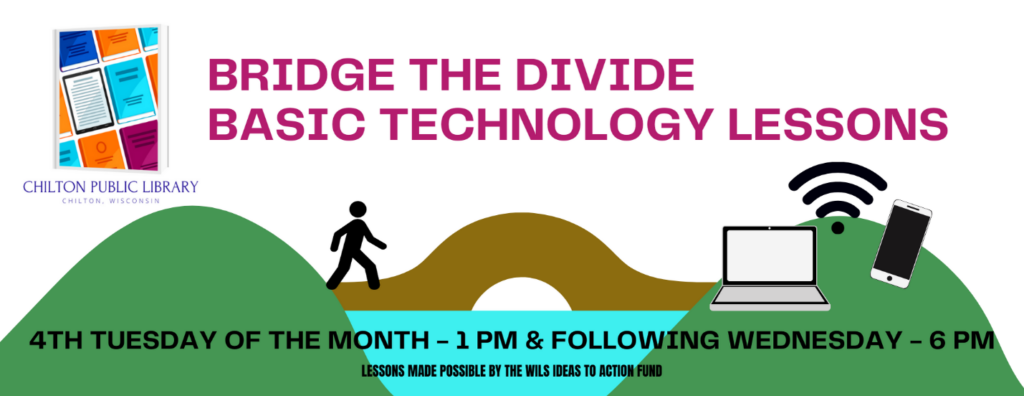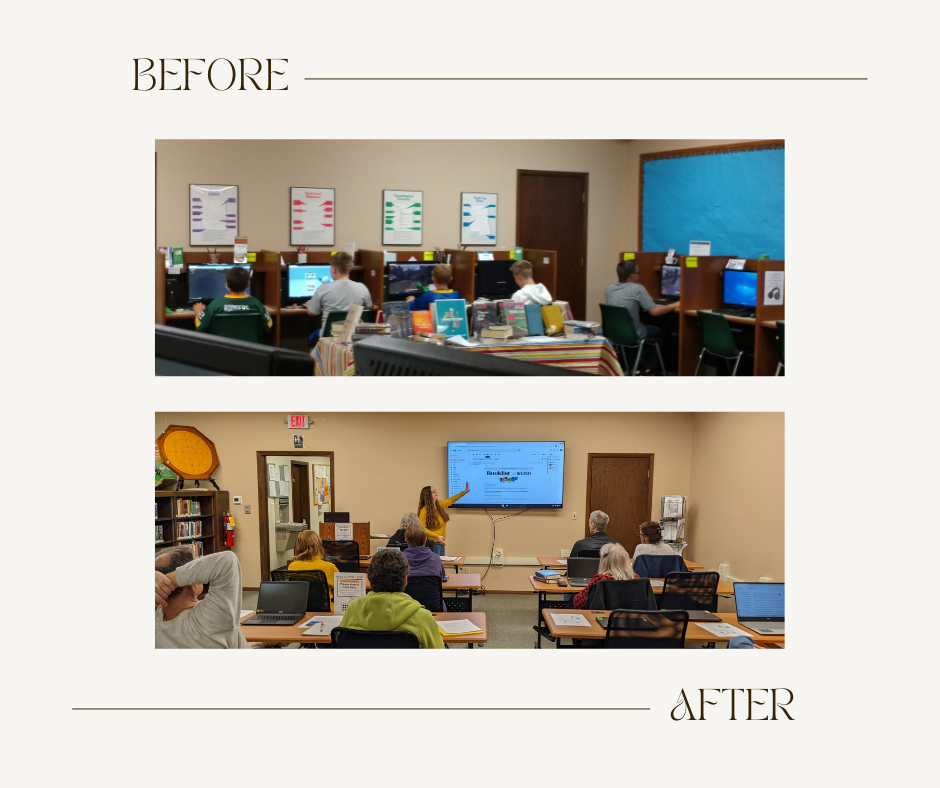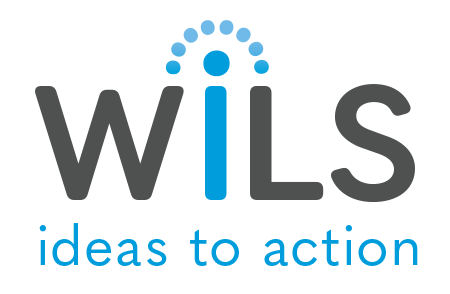By Rebbecca Barry, Assistant Director at Chilton Public Library
“Do you really think that you will have a calculator with you everywhere you go?” Turns out that I now carry a mini-computer with me in my pocket. Not a digital native, I was raised to recognize the growing technological age. As we moved from electric word processors to foldable smartphones, I looked forward to embracing what new leap forward society would make. However, not everyone crosses that digital bridge.
A large segment of our community was being left behind. From needing assistance setting up an email address to trying to learn a new tablet that their son in California insisted that they would love, patrons were struggling. Enter COVID, and now everyone needed to be online, whether you were ready or not.
While during COVID, we were unable to truly help those experiencing the digital divide, we knew we needed to address this community issue as soon as we could. But the Chilton Public Library, like many libraries, was not designed for this technological age. We also knew from years of assisting patrons with tech issues, that those patrons often felt alone in their struggles. They knew they needed to understand but didn’t know where to start.
Doing just one-off programs was not helping. While we were addressing that one specific need, there were always more questions to follow. We wanted to find a way to build a foundation where the community would develop a comfort level so that they could start to travel the online world and bridge that divide. What we needed was a year-long program that would discuss the basics of how we go online and what we do when we are there, all while addressing online safety. After much research, a twelve-month workshop was created for those who had no-skill or low-skill when it came to technology. Held each month, once in the afternoon and once in the evening, we would teach the basics. Each month would build on the pervious month’s lessons. We were going to work on Bridging the Divide.

To address both the space and the fear, we came up with a plan to create a safe learning environment that could meet the current and future needs of the library and the community. Gone would be the days of solitary computer carrels and desktop computers. The library was going to open that space to allow for collaborative learning on Chromebooks that has accessibility settings that patrons could use. We would add a large, digital screen that we could cast computer and phone screens, so everyone could see and follow along. This open environment would show attendees that they were not alone in their fear. Everyone that was there would be experiencing similar anxiety. From those considerations, the Learning Lab was born.

Thanks to the generous funding through the WiLS Ideas to Action grant, we were able to put our plan into action. We moved forward in purchasing and development so that we could run our first workshop in January.
If you build it, they will come. And boy did they come. Within ten days of the postcard explaining the program dropped, every afternoon class … for the whole year … was full. We figured the classes would be popular, but nothing like we were expecting. Due to demand, we ended up opening another afternoon class (which filled up as well).
While we anticipated a little more hands-on and following along, most of the classes are more show-and-tell. Turns out that our attendees are more comfortable with discussion-based learning. With that in mind, we did some modifying of our handouts. No longer was the layout going to be more for notetaking, but a handy reference that harkened back to the discussion. We also noticed that those with no-skill were still struggling. When it becomes time to rerun the classes, it will be advertised as low-skill. No-skill learners may benefit from a more one-on-one setting to start.
Even with some modification to the program, we cannot believe what a resounding success the new Learning Lab and the Bridging the Divide program has been. We look forward to seeing our community grow their tech skills while building a comfort level to navigate the digital landscape.
Without this grant, I don’t know if we would have been able to make this dream a reality as soon as we did. This project has been greatly received and has already made a strong impact that will be felt years to come. Thank you to WiLS, Calumet County ADRC, and all those that helped make the Learning Lab possible.
